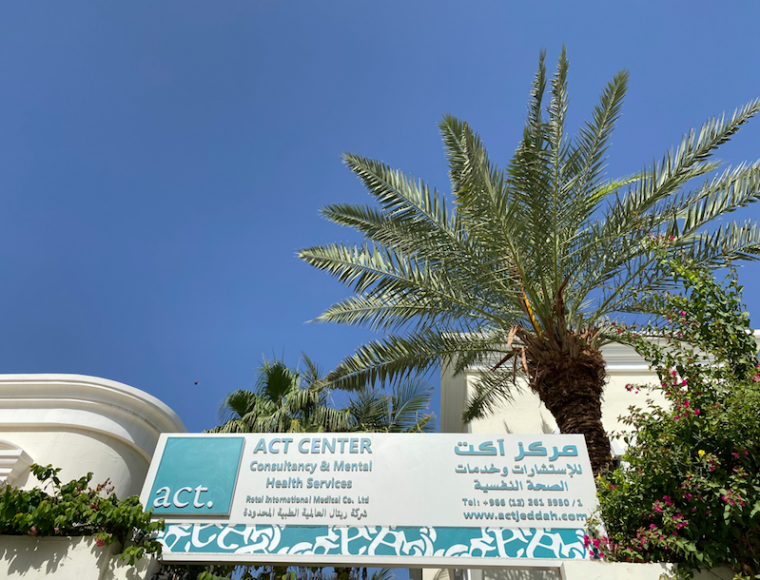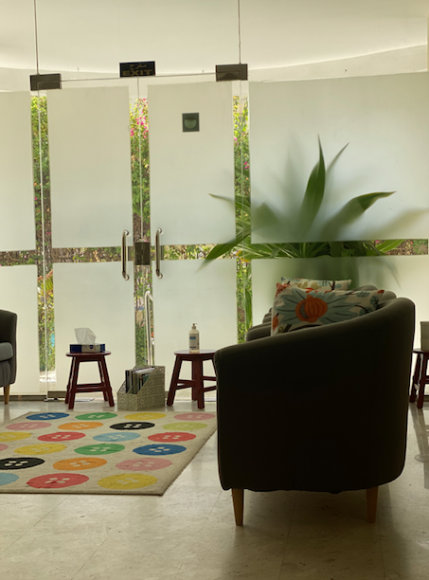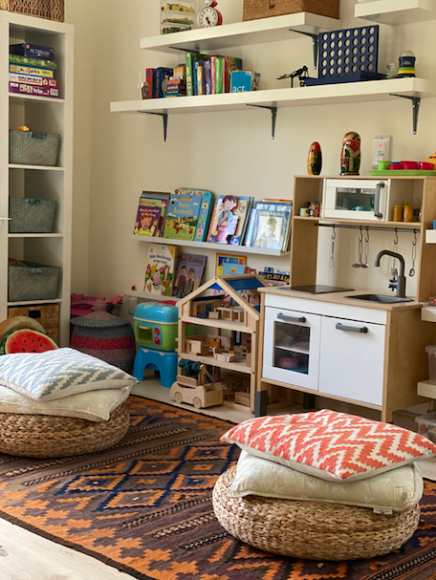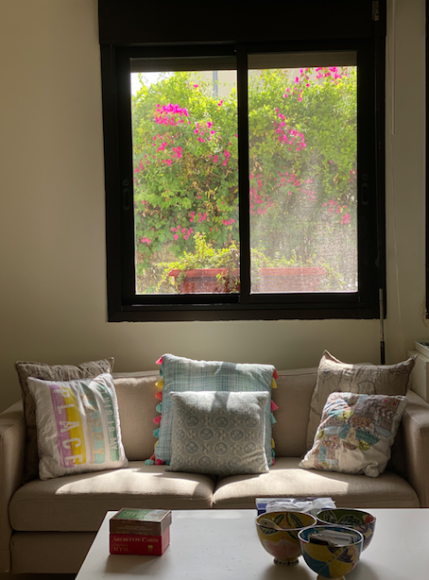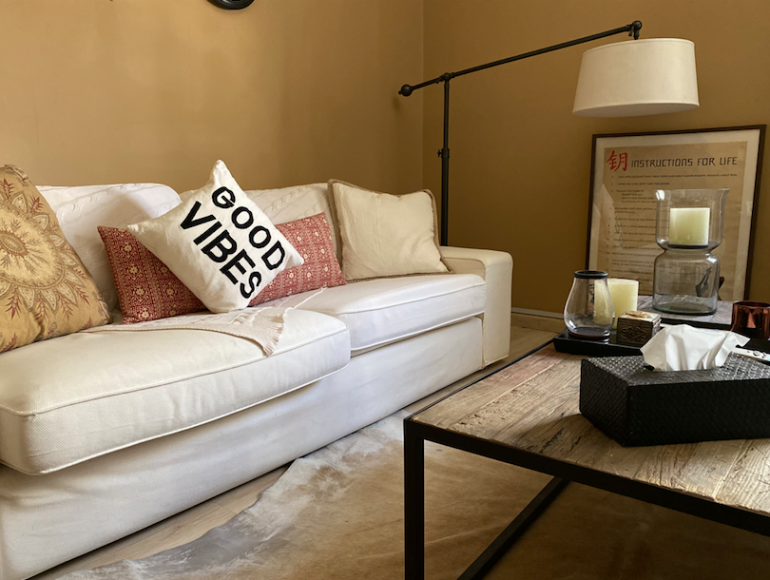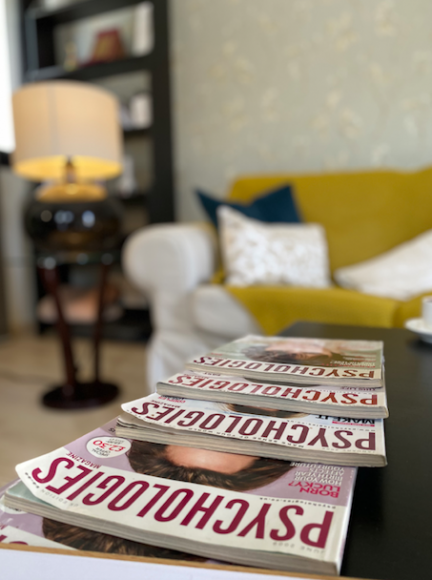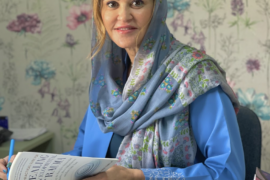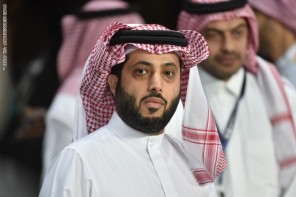ACT Center provides a specialized service which would have been previously glossed over in the region, talk to us a little about ACT’s inception, mission and what services you provide
We were 5 Saudi female psychotherapists, who after graduating from and training in the UK and the US and returned to Jeddah and found that there was a large gap in the mental health arena; in terms of the necessary services provided, awareness about mental health, the stigma and taboos attached, as well as the right environment for therapists to be supported, to grow, train, and develop.
We are proud, after overcoming various challenges, to have been the first multidisciplinary standalone therapeutic center in Saudi Arabia to be licensed by the Ministry of Health, and can confidently say we have played a vital role in changing the stigma, normalizing therapy, providing support for mental health needs, and in providing a space that is confidential, ethical, professional, and culturally appropriate. We adapted Western psychotherapies and therapeutic modalities to become more culturally sensitive, and delivered our services proficiently in the local language (as well as English and French).
Mental health challenges are a part of life, and a normal part of human struggle. A significant portion of the public now find therapy acceptable to them, and have managed to shed the shame that was previously attached. A large part of how we achieved this, besides the therapy itself, was through psychoeducation: lectures, workshops, campaigns, articles, and media presence.
The center was built on respect, compassion, trust, quality of service and confidentiality; consistently bringing world class ‘best practice’ to enable our clients to achieve a better quality of life. Our aim was to create a unique cozy environment, where everyone feels safe and comfortable; a haven for all to be fully accepted just as they are, never judged- while supported to deal with life’s stressors, mental health issues, as well as anything life throws at them.
Can you tell us more about the medical staff in your center?
ACT is a mental health wellness facility registered under the Ministry of health, and is not a medical facility in as such. All our clinical staff are licensed psychotherapists, psychologists, and psychiatrists, with Masters and PhD levels from well-established international universities in the US and Europe. They come from different modalities, and varied experiential work and years of training in a multitude of clinical, professional, and educational settings.
And why have you chosen Saudi Arabia for your center?
Saudi, and specifically Jeddah, is home for the founders of ACT, and we all strongly believe in supporting and strengthening our community, and giving back to our country. When we first established ACT in 2009, at home in one of our basements, Saudi did not have a center such as ours and people were having to go to hospitals and get treated as ‘sick patients’ when all they wanted and needed was therapy, counseling, and support. In addition, the fact that our center incorporates a multitude of services in the mental health field offered people a “one stop shop” where they could receive treatment as individuals and families in a holistic integrated manner instead of running from hospitals to centers to clinical offices and back.
Our aim was also to be the model for Mental Health Services in the country, and in the past half decade or so many other facilities have opened, some by the therapists we trained, who worked for years establishing themselves at ACT, and also whom we taught at University. It is so gratifying to see so many Centers opening, showing the dire need for therapeutic services, one that is increasing with the current life challenges of increasing stressors and traumas- not to mention the Covid pandemic!
True change can only happen if we all work together for the betterment of mankind.
There is a recent worldwide trend of mental health awareness health (example the World Mental Health Day in October). Why do you think individuals are suddenly realizing the significance of mental wellbeing?
The attitude to mental health has gradually changed over the last few centuries, where people used to be called insane, accused of being evil or possessed, were locked up, tortured, cast out, shamed, ridiculed… the names then changed to Hysteria, Madness etc – slowly becoming less harsh and more normalized. For many, especially those who have suffered the most, the perceptions have changed at a snails’ pace overtime along with the stigma, shame, and taboos attached. Media, social media, celebrities, models have played a role in both normalizing and educating the public about mental health challenges. Finally, the wording has changed as well, from mental illnesses to mental wellness, positive psychology, growth mindsets vs. fixed mindsets, resilience building, etc.
In the Middle East, people are often afraid to be stigmatized for visiting a psychologist; how are you trying to change the mindset? And what advice would you give individuals who resist professional aid?
When we first started in 2010, there was a strong stigma against seeking support for mental health or visiting a therapist. We have been able to alter the mindset of the community and successfully establish a sense of “mental wellbeing” vs. mental illness and reduce if not limit the shame attached.
A strong media presence, TV appearances, magazines, radio interviews, and campaigns, proved essential as well as starting our own social media platform, visits and presentations to schools, universities, companies- as well as developing training and wellness program for the them. Word of mouth was also a strong suit in our culture, and the more clients came to ACT and develop their trusted, the more they referred and recommended it to others. Through the recruitment of excellent clinicians upholding the highest level of confidentiality and therapeutic services, and continuously providing a safe accepting space to vent about one’s challenges without judgment and discrimination, allowed clients to just ‘be human’ without the masks one feels one has to wear, and be free from the stigmas attached.
Beyond medication, can you provide alternative recommendations for psychological improvement?
ACT is essentially a therapeutic facility, where we use a combination of psychotherapeutic modalities from psychological and psychotherapeutic frameworks. We do everything possible to make sure a client does not need to resort to medication unless absolutely necessary. Medication is they key difference between psychologists and psychiatrists. While in specific cases a psychiatrist must prescribe medication for chronic illnesses, we work collaboratively with psychiatrists to eliminate medications where possible, or reduce their use, and replace them with psychotherapeutic interventions.
There are many ways to help without the need for medications; techniques that include meditation, mindfulness, cognitive behavioural techniques and frameworks, journaling, access to natural herbs and vitamins, modification of disruptive daily dynamics, exercise…
What are some key facts and figures we should know around mental health?
A recently published study by the Saudi National Mental Health Survey Technical Report places the Saudi (youth) population at 2 in 4. This means that 2 out of every 4 people will experience some kind of psychology disorder in their youth.
And besides professional support, what are some daily things we can do to improve our mental wellbeing on a personal level
We love this question! There are so many things one can do and we get excited talking about it; some of the things include: keeping a journal of daily thoughts and moods, which helps to release the build of thoughts and emotions, and allows the person to better understand them- one of the journaling techniques we recommend some clients use is “Morning Pages” by Julia Cameron. Other types of writing include: Reflective writing: writing down own thoughts to problem solve spurt and Splurge Writing: venting to declutter the mind.
Morning meditations and positive affirmations help clear the mind and jump start the day, while evening meditations can help one shut off from the stress of the day, and prepare one for a relaxing night’s sleep.
Regular practice of mindfulness and breathing techniques is essential to help us live in the moment, become grounded, connect with life, and help us slow down in the hectic world we find ourselves in. Mindfulness also involves practicing conscious gratitude and savouring all the positive moments, big and small. Check out Yale Professor Laurie Santos’s course “The Science of Wellbeing” on Coursera. A great resource for increasing wellbeing!
Disconnecting from electronics and social media is vital to live a healthy life and maintain mental wellness. We encourage people as a first step to introduce an ‘electronic sundown’ and put all electronics ‘to bed’, 2-3 hours before bedtime.
Establishing routines that include 7-8 hours if sleep if possible; sleep is seriously underrated and lack of sleep, especially over time can lead to all types of mental and physical problems- while getting a restful night’s sleep, especially in combination with regular physical exercise which is one of most essential stress relievers decreasing cortisol stress hormones as well as increases endorphins levels, dopamine and serotonin, which elevate mood. Sleep, exercise, and nutrition (eating healthy as an act of loving one’s body and not as a diet or an intention of deprivation) are our three superpowers, as well as maintaining strong social ties and connection, which boost productivity, positivity, growth, resilience, and overall mental wellness.
Having the right resources to help when stressful situation arises, which can vary from person to person. Finding a space to someone trustworthy to talk to, listen to podcasts and lectures, take short breaks and go somewhere.
Connecting with and being in nature as often as one can, walk instead of drive, leave the city towards the countryside or the seaside for the weekend to recharge away from the bustle.
Practicing self-love and self-compassion is key to being in healthy relationships and to be able to practice true self-care. Engaging with people who uplift you with their vibrations, avoiding people who make you feel bad about yourself (toxic energy); even watching mindless television sometimes to help switch off, finding a hobby you enjoy and making time for it.
Reaching out and seeking help as soon as possible, talking about the problem early on to help shift from survival mode to preventative mode- Prevention is often easier than cure!
Engage in what feeds your soul and does not deplete your energy!
Text by Victor Gee


